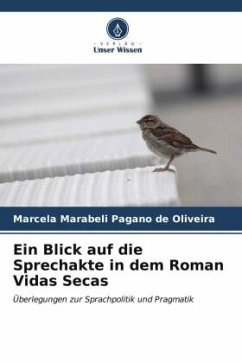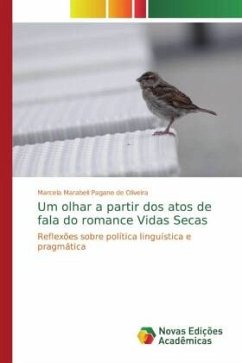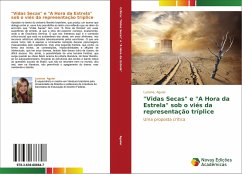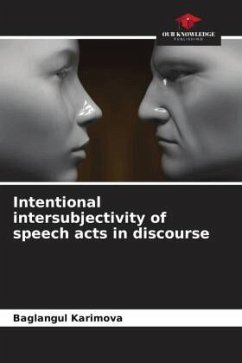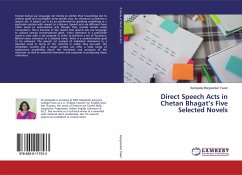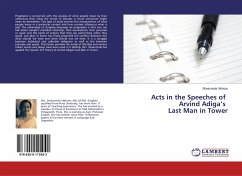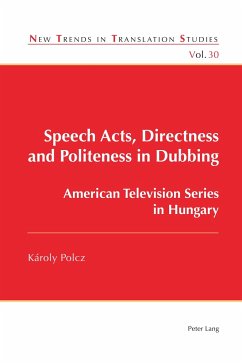
A look at speech acts in the novel Vidas Secas
Reflections on linguistic policy and pragmatics
Versandkostenfrei!
Versandfertig in 6-10 Tagen
36,99 €
inkl. MwSt.

PAYBACK Punkte
18 °P sammeln!
The general aim of this book is to reflect on some aspects of linguistic politics that may permeate the speech acts (Armengaud, 2006; Melo, 2014; Pinto, 2006, 2014) of the novel Vidas Secas (Candido, 2012; Moraes, 2012) by Graciliano Ramos, in order to improve approaches that refer to linguistic politics (Correa, 2014; Rajagopalan, 2013, 2014) and agency (Asad, 2000; Ahearn, 2000) from a proposal to study a classic of national literature. In this sense, the research is divided into three axes: linguistic politics, speech acts and the literary text in question, which are interconnected through ...
The general aim of this book is to reflect on some aspects of linguistic politics that may permeate the speech acts (Armengaud, 2006; Melo, 2014; Pinto, 2006, 2014) of the novel Vidas Secas (Candido, 2012; Moraes, 2012) by Graciliano Ramos, in order to improve approaches that refer to linguistic politics (Correa, 2014; Rajagopalan, 2013, 2014) and agency (Asad, 2000; Ahearn, 2000) from a proposal to study a classic of national literature. In this sense, the research is divided into three axes: linguistic politics, speech acts and the literary text in question, which are interconnected through the specific objectives: a) discuss the concepts of politics and linguistic politics; b) investigate possible traces of linguistic politics in the literary writing of Graciliano Ramos; c) learn about the author's political identity; d) defend the idea that Vidas secas corresponds to a novel about the discovery of language; e) think about speech acts and their political function in this narrative; f) define the characters as social agents and their practices as agency.



